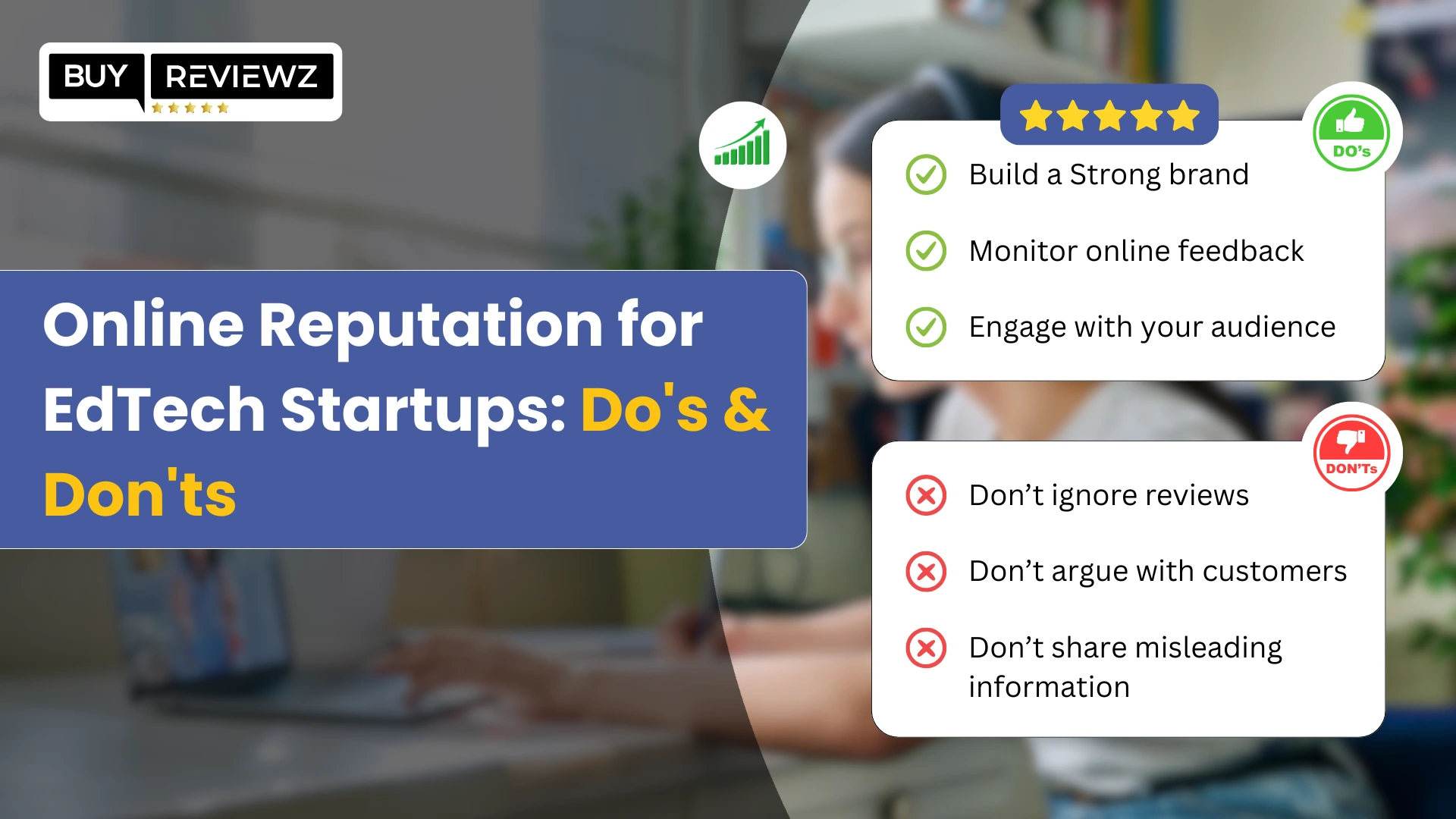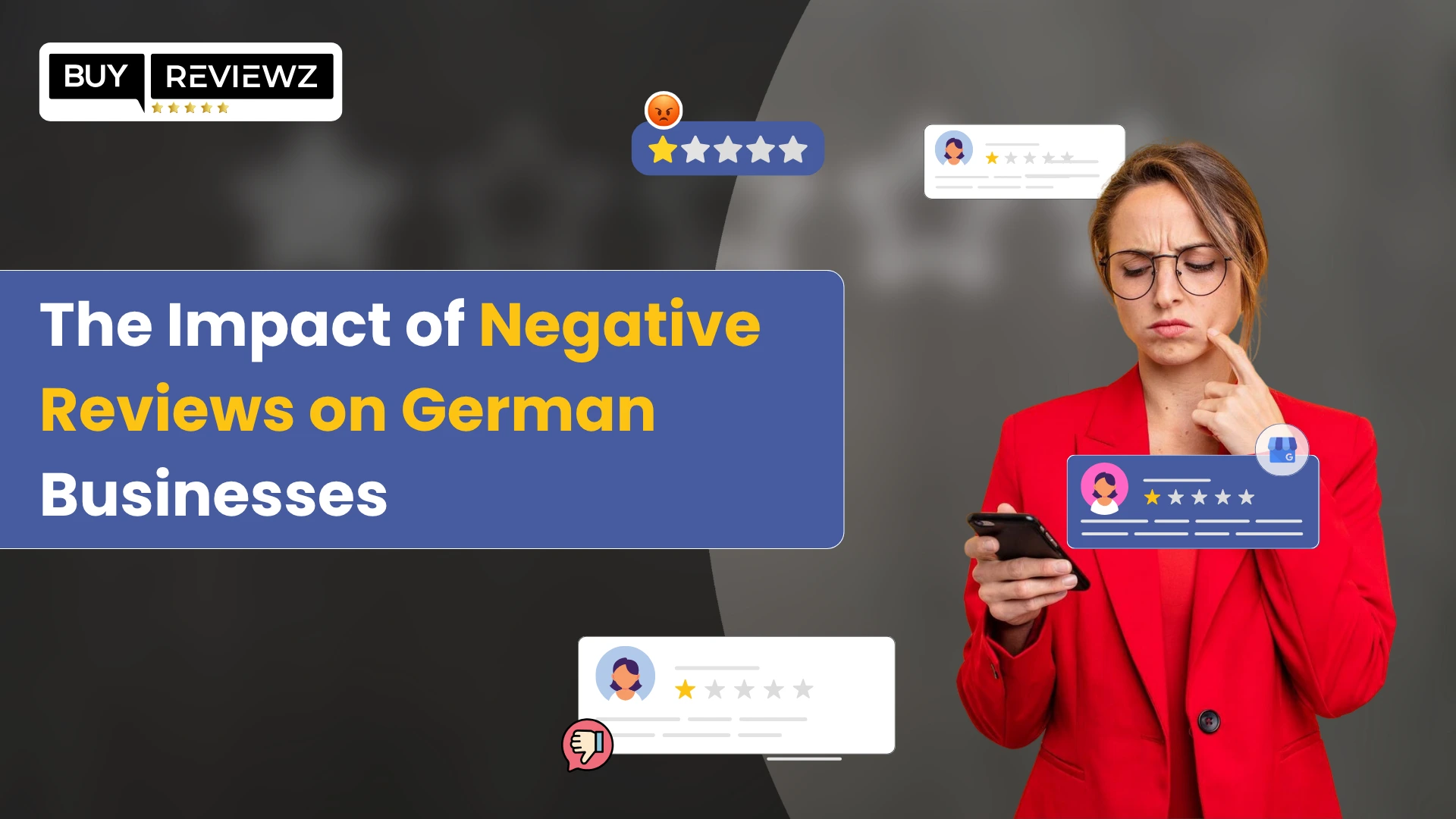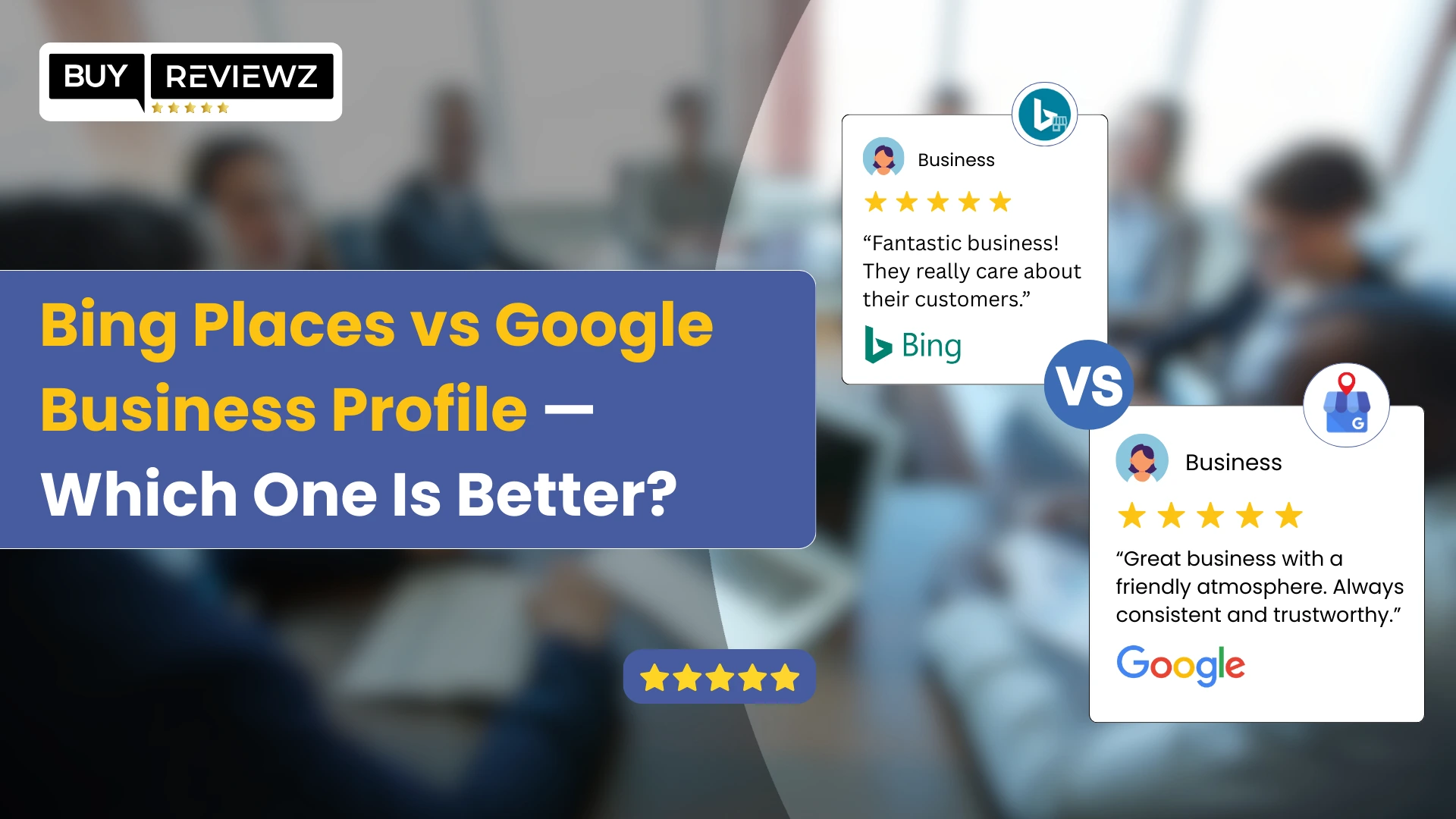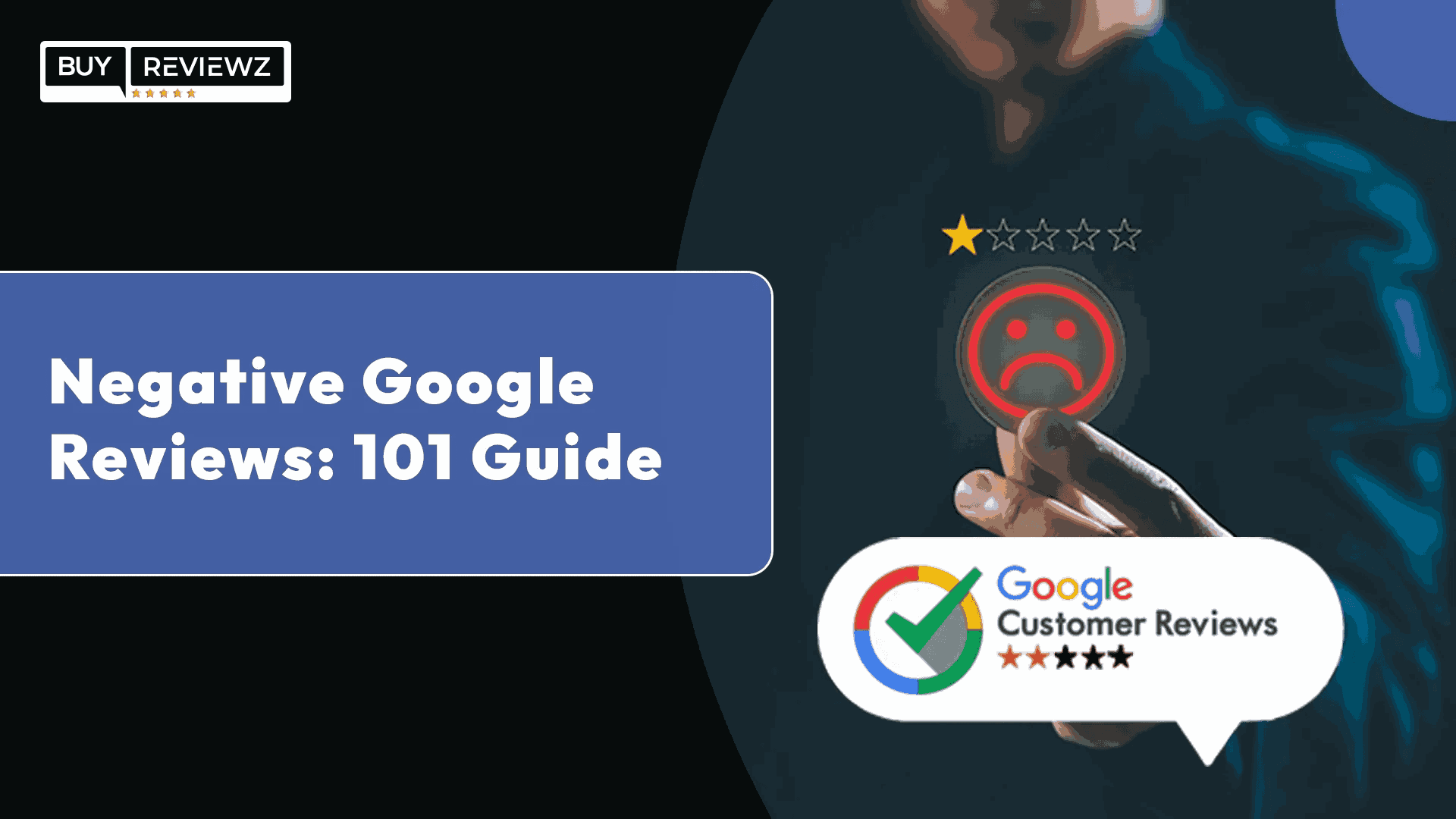Key Takeaways
-
Transparency Builds Customers ’ Trust.
-
Timely & Professionally Respond To Negative Feedback.
-
Engage Through Online Channels.
-
Manage Your Reputation Continuously, Not Occassionally.
If you own an EdTech startup, you may already be aware of how important your online reputation is in helping your company grow in this competitive digital world.
Parents often start their search for an Ed-Tech by reading reviews on different trusted online review websites and comparing all the available options. Every online review given by potential customers contributes to the story of your brand.
In this blog, we will help you create a trustworthy online image with the right ways you can use to build your reputation. Let's get started.
Why Online Reputation Matters in EdTech?
Before putting trust and choosing any EdTeach platform, parents and students both go through online reviews on social media, websites, and review sites. A solid online reputation quickly builds trust in the minds and thus attracts new clients too.
Receiving positive reviews as well as negative reviews both go hand in hand. But, negative reviews scare customers away and make them feel doubtful about choosing your Ed-Tech. Since every decision is made online, it’s important to know the right practices to build your reputation.
Dos to Build a Good EdTech Reputation
Building a good online reputation takes time, but it is one of the most beneficial investments for any EdTech startup. Here are some basic things you can do to project a favorable image and gain trust.
-
Ask Satisfied Users for Honest Reviews
Happy customers are your best advocates as well as promoters. When someone completes a course and has a positive experience, encourage them to submit a review on your Google business profile. It can just be a short sentence with honest words.
These ratings attract future parents and anyone looking for high-quality education technology solutions, boosting trust in your platform and positioning your company as the best alternative.
-
Keep Track of What’s Being Said Online
To keep yourself aware of things happening around your business online, make it a practice to regularly monitor what others are saying about your brand on social media, Google, and educational forums, and what you can do to improve negative comments.
To make this task easier for you, set up alerts to stay current whenever you receive any review. This allows you to identify problems early and also thank people for taking their time out to share their positive experience through reviews.
-
Handle Negative Feedback with Care
Receiving a negative review might be challenging and frustrating too, but it also provides an opportunity to show how professional you are. Never ignore or argue on the public sites where you have received one. Buying Google reviews will balance such situations for you, so be polite while responding.
A careful response can convert an angry user into a devoted one, demonstrating to others that you are genuinely concerned about your students' experiences and achievements.
-
Use Content to Build Authority and Trust
Instead of only selling courses, include useful information such as study advice, learning aids, and how-to videos on your website and social media sites. When consumers see value in what you post, they start to trust your brand.
Good content helps increase your posts engagement, internet presence and keeps your audience interested even if they aren't ready to buy right away.
-
Ensure Your Brand Profiles Are Consistent and Updated
Your web presence should be clean and trustworthy throughout the profiles. Make sure your brand name, business logo, contact information, and all the course details are consistent across each online platform, such as Google, LinkedIn, and Instagram.
A well-updated and consistent posting style fosters trust and presents your startup as serious, professional, and worth investing in by the parents.
-
Showcase Outcomes Through Real Success Stories
Share experiences about how your platform helped students improve their grades, obtain certificates, or achieve their goals. Let your outcomes do the talking and build a strong reputation.
People trust other people's experiences, and demonstrating the actual success of the students in your EdTech can bring in new users to explore and choose you.
-
Collaborate with Trusted Educators and Influencers
To build trust and legitimacy for your Ed-Tech start-up, consider collaborating with teachers, education bloggers, or well-known influencers. When people in your clients already respect and speak positively about your business, the trust of potential clients grows faster.
Choose collaborators who share your beliefs and truly believe in what you offer; it will feel more authentic and attract the proper audience.
While keeping in mind the things you should consider doing, it’s equally important to know the mistakes to avoid that can hurt your Ed-Tech online reputation. Let’s move forward to learn about that.
Don’ts: Mistakes That Can Hurt Your Reputation
Just as excellent behaviors help to create your reputation, a few bad decisions can swiftly ruin it. In the competitive EdTech industry, trust is essential. To protect your reputation, avoid the following-
-
Never Ignore Customer Feedback
Always reply to complaints, questions, and suggestions. Ignoring feedback makes users feel irrelevant and erodes trust. Even a brief response demonstrates that you are listening and willing to improve.
Customers notice when you care, and so do future users. When others realize that you are willing to learn and act, your reputation improves.
-
Don’t Make Exaggerated Claims
Don’t write statements such as guaranteed results, this may backfire if not found accurately later. Be clear and honest about your platform's offerings and what students should expect from your EdTech
Your potential users will appreciate your truthfulness, which fosters long-term trust rather than short-term enthusiasm.
-
Refrain from Arguing Online
When someone writes anything bad about your EdTech, it can be easy to defend oneself, but it is never a good idea to fight on the public platforms. Instead, answer gently and move the conversation to a quiet area.
Being respectful, even while under pressure, demonstrates professionalism. To build the reputation again you can buy Google 5 star reviews to balance. difficult situations with dignity rather than turning them into online conflicts.
-
Don’t Overlook Your Internal Reputation
It is also important to consider your employees' thoughts. If your team feels underpaid or unhappy, it may reflect in negative reviews on sites like Glassdoor or bad customer service.
Treat your staff well, foster a healthy work culture, and listen to them because a happy workforce will automatically contribute to a strong and favorable brand image.
-
Avoid Spamming Forums or Social Channels
Posting the same message repeatedly in Facebook groups, comment sections, or forums does not attract users; rather, it irritates them. Instead, interact naturally. Share helpful advice, answer questions, or participate in debates.
People are more likely to check out your platform if you provide value rather than constantly pushing promotions.
-
Don’t Delay Customer Support Responses
If a student or parent has a problem, they want to get a resolution right away. Slow responses can frustrate customers and lead to unfavorable ratings. Make sure your support personnel are accessible and quick to respond.
A fast response, even if it is as simple as "We're working on it," demonstrates to people that you care and are reliable.
Conclusion
Building and safeguarding your online reputation is as crucial as creating quality content on your website and social media platforms. A solid reputation enhances trust, increases sign-ups, and allows your business to flourish faster.
Doing things at the correct time is very important, such as communicating with people at the time you have received the message, and also always keep sharing real success stories to position your startup for long-term success.
Building the reputation of your EdTech platform is a slow process, and if you need a boost, you can buy Google reviews at BuyReviewz and enhance your online credibility.







 Can One Person Write Multiple Negative Google Reviews?
Can One Person Write Multiple Negative Google Reviews?
 Negative Google Reviews: 101 Guide
Negative Google Reviews: 101 Guide
 Importance To Have Mix Positive And Negative Reviews
Importance To Have Mix Positive And Negative Reviews